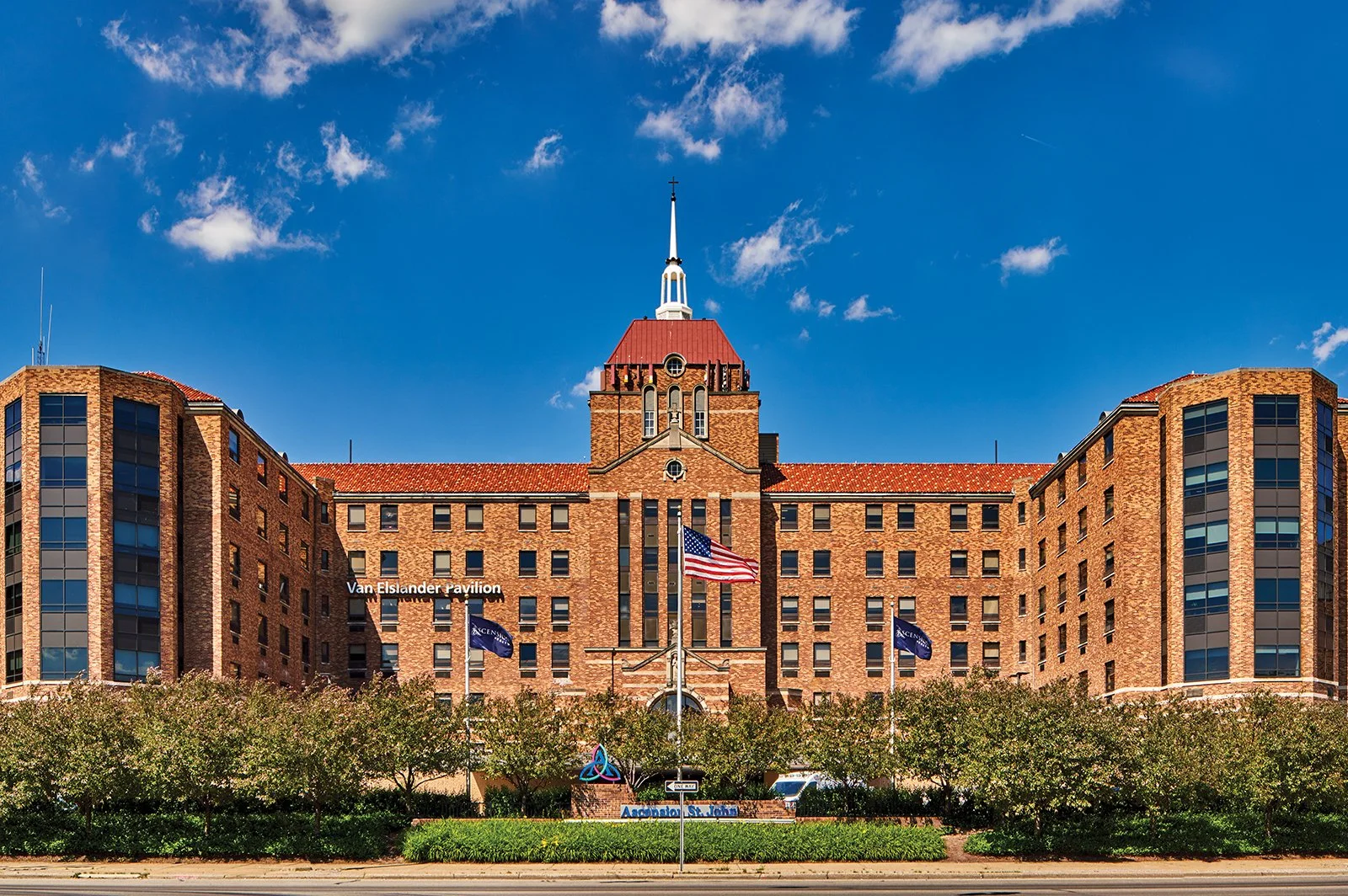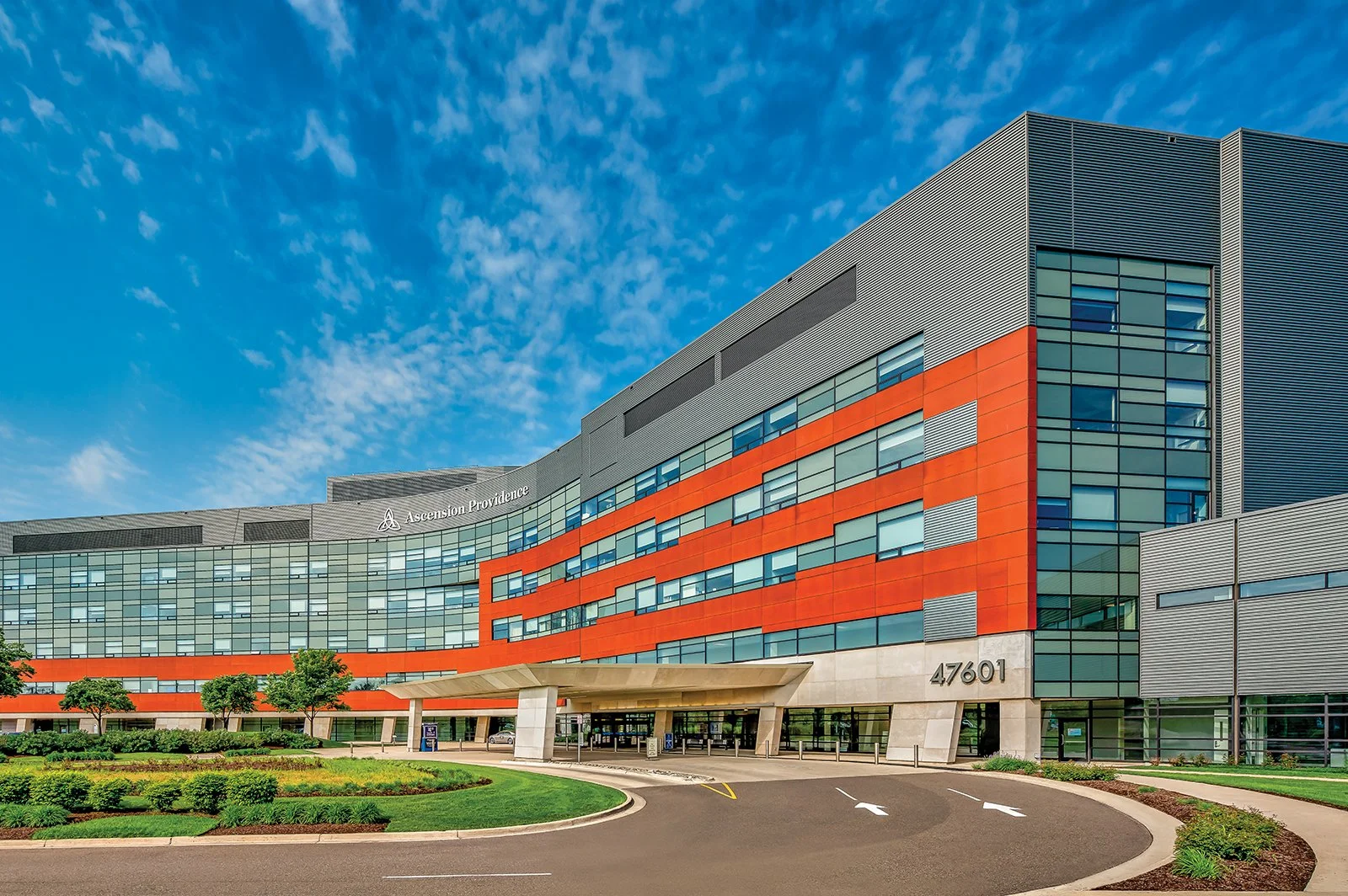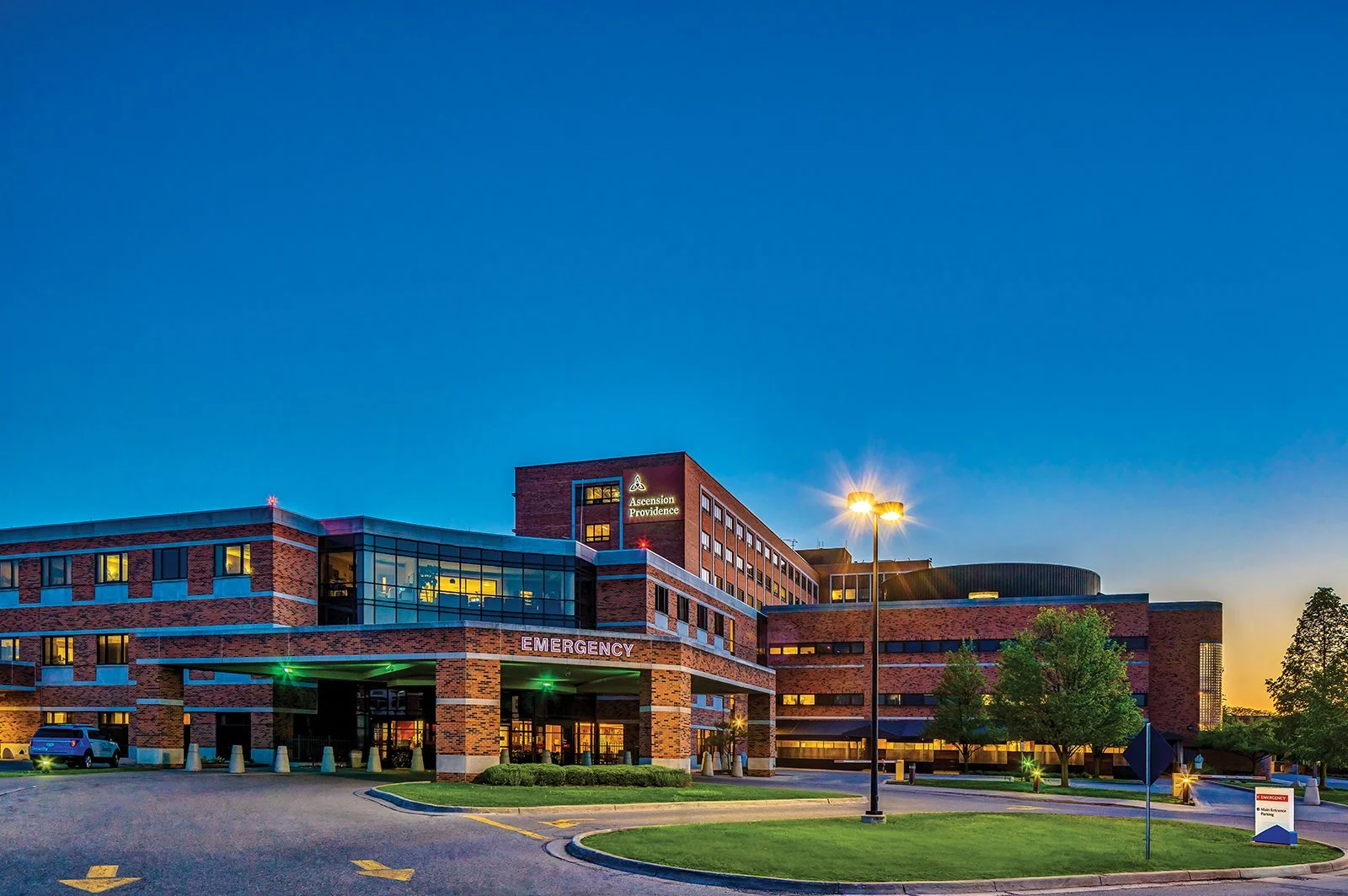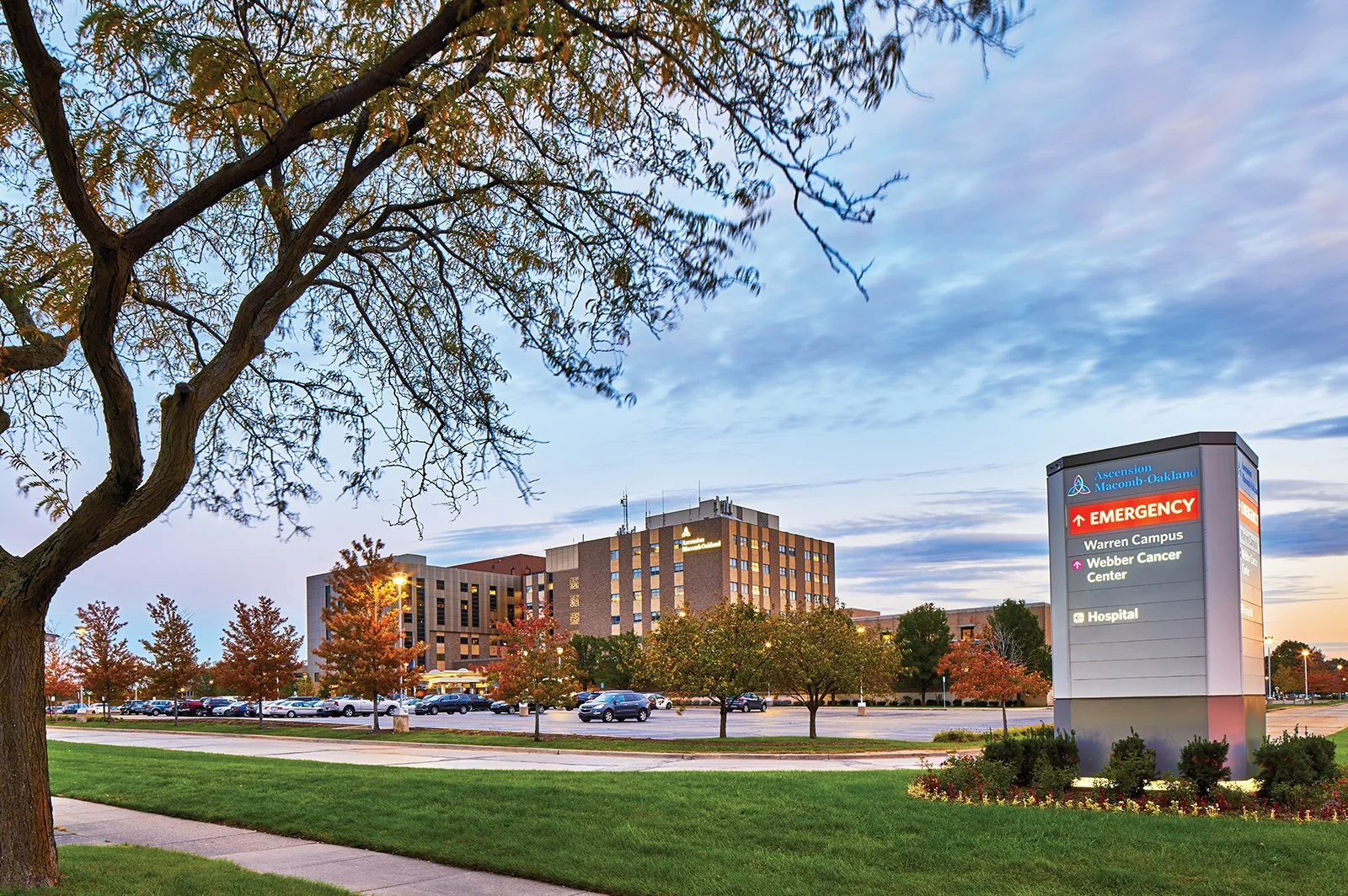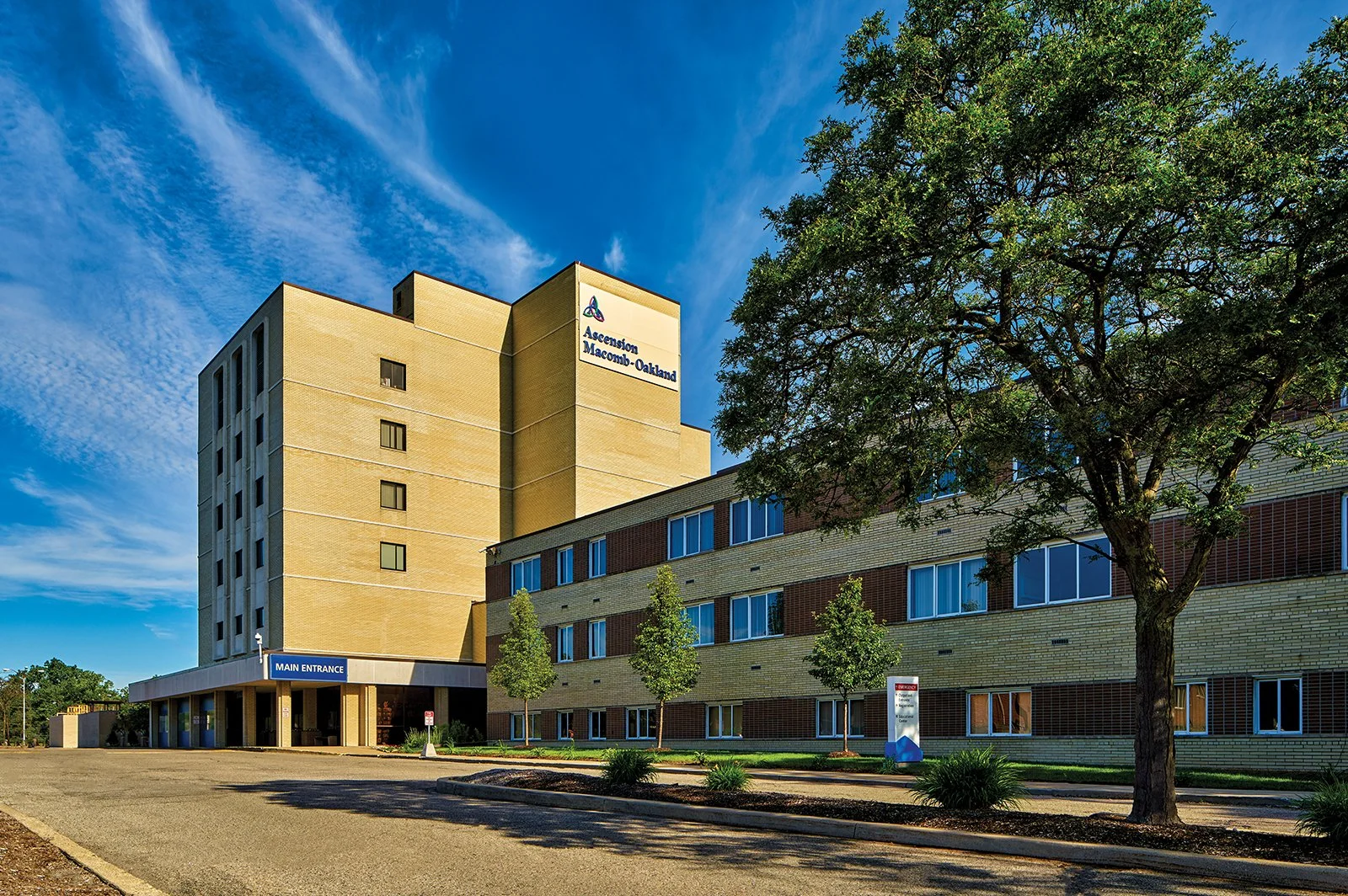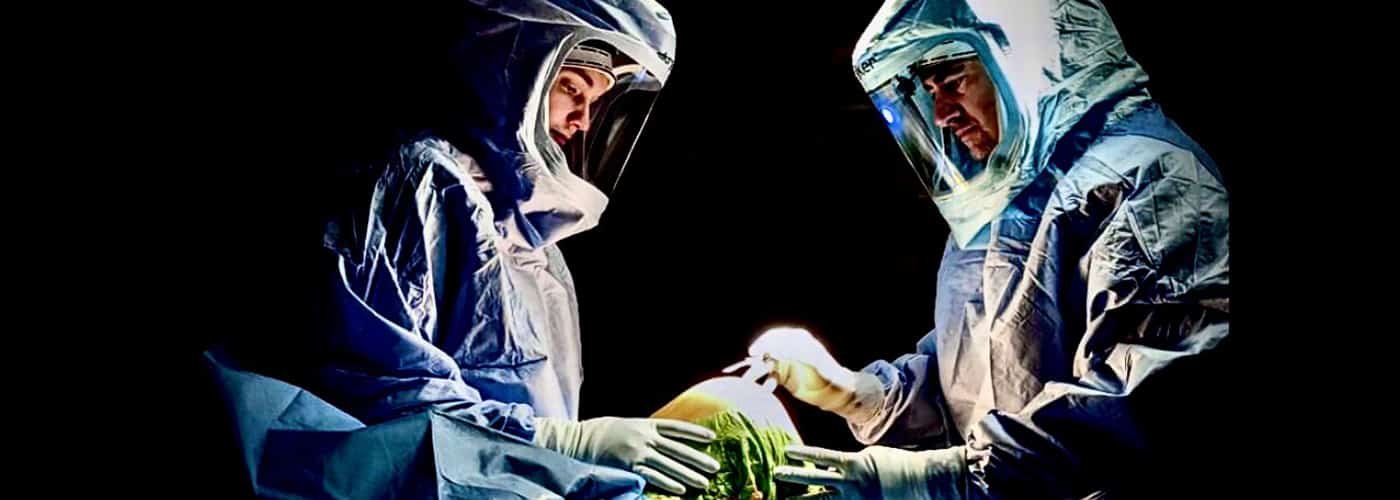
Rotations 2023-2024
PGY-1
Orthopaedic Surgery (6) General/Trauma
Off Service (6)
General Surgery,Vascular Surgery, Surgical Intensive Care Unit, Emergency Medicine,Internal Medicine, Radiology
PGY-2
Trauma (4)
Pediatrics (3)
Spine (2)
Sports (2)
General/Research (1)
PGY-3
Adult Reconstruction (3)
Hand (3)
Pediatrics (3)
Sports (2)
Electives* (1)
PGY-4
Trauma (4)
Adult Reconstruction (3)
Foot and Ankle (2)
General (2)
Research (1)
PGY-5
Adult Reconstruction (3)
Sports (3)
Trauma (6)
Upon Graduation
Trauma/General 23 months
Adult Reconstruction 7 months
Sports 7 months
Pediatrics 6 months
Spine 3 months
Hand 3 months
Foot & Ankle 2 months
Electives* 1 months
Off-Service 6 months
Additional training includes ATLS, AO Basic & AO Advanced Trauma, industry sponsored cadaveric & sawbones courses.
General rotation is between Macomb-Oakland Warren & Madison Heights Campuses.
Residents on Research can also volunteer to cover surgeries where/when desired, however it is not a requirement.
*Elective months can be used for any subspecialty training including Orthopaedic Oncology, used for dedicated research, to further personalize training.
There are no out-of-state rotations. Every rotation is located within the Greater Detroit Area.
Details
-
Site: St. John Hospital
Attendings: Dr. Benjamin Best, Dr. Alan Afsari, Dr. Adam Fahs
Description: This rotation is at a busy ACS Level 1 Trauma center, set between a suburban community to the east, inner-city suburbs of Detroit to the west, with nearby major highways and industrial properties to the north. As an ACS Level 1 Trauma center, this hospital not only receives local low-energy traumas, but also high-energy freeway trauma, penetrating injuries secondary to gun shot wounds, and transfers from the Ascension hospital in the greater Metro-Detroit area. As an ACS Level 2 Pediatric trauma center, residents are also exposed to the most common pediatric trauma, preparing interns and 2nd year residents for their pediatrics rotation at an ACSLevel 1 Pediatric Trauma center. At St. John, a night shift resident decreases the work load required by the team in the morning. The team is also supported by an experienced team of Physician Assistants. There is a dedicated orthopedic trauma room, meaning all cases start promptly at 7:30am. Additionally, this rotation does not have visiting orthopedic trauma fellows, meaning a stronger operative experience for residents.
Didactics: Fracture conference on thursday mornings from 7:15-8:15am, discussion about relevant journal articles, upcoming and past cases, covering radiographs, ED/floor/OR management, with higher level operative techniques led by all present fellowship trained trauma attendings.
Highlights: diverse pathology, high energy poly traumas, support staff, dedicated OR, pediatric trauma exposure
Approximate yearly operative case distribution:
The fractures were chosen based on Orthopedic Trauma Fellowship requirements to demonstrate the fellowship-level trauma experience residents get at St. John. Numbers do not include most common cases: hip fx, distal femur fx, tibial shaft fx, ankle fx, olecranon fx, radius & ulnar fx.
Pelvis: 62
Acetabulum: 38
Pilon: 23
Calcaneus: 14
Tibial Plateau: 45
Distal Humerus: 34
Humeral Shaft: 27
Pediatric: 114
*Does not include non-operative cases
-
Sites: Ascension Providence Novi & Southfield Hospitals, Macomb Hospital, Oakland Hospital, Ascension Rochester, outpatient surgical centers
Attendings: Dr. David Markel, Dr. David Knesek, Dr. Paul Knapp, Dr. Matthew Schramski, Dr. Alan Klein, Dr. Nicholas Frisch, Dr. Matthew Caid, Dr. Martin Jenter, Dr. Michael Laker, Dr. William Higginbotham III
Description: Residents on these rotations can expect high operative volumes in total hip & knee arthroplasty, as well as unicompartmental knee arthroplasty, and revision hip & knee arthroplasty. Residents will become familiar with all four major surgical hip approaches, robotic-assisted and robotic-navigated arthroplasty (30% of volume), and all major arthroplasty hardware systems. Structured under a mentorship basis, residents work closely with a single attending for weeks at a time to develop a strong relationship & identify critical operative techniques through repetition. Residents will also staff the outpatient clinic for clinical continuity of their patient’s post-operative course. The service is greatly supported by a team of experienced and dedicated Nurses and Physician Assistants who assist in clinical and clerical work.
Didactics: Thursday morning conference from 7:30-8:30am. On a rotating schedule, the conferences will include case presentations, journal club discussion, radiology rounds, morbidity & mortality, all resident led with expert input from attendings. Additionally, one week each month the conference will include an orthopedic service line, where residents get first hand look into the inner-workings of managing a hospital-wide orthopedic service.
Highlights: high case volume, continuity clinic, novel robotics, support staff
Monthly Case Volume/Distribution: 40-60 cases/month
-
Sites: Ascension Providence Novi & Southfield Hospitals, Macomb Hospital, Oakland Hospital, Ascension Rochester, outpatient surgical centers
Attendings: Dr. Todd Frush, Dr. Sean Bak, Dr. Diana Silas, Dr. William Kesto, Dr. Jason Holcomb, Dr. Nathan Marshall
Description: Residents on the sports service work with a variety of attendings at the hospital and surgery center. A highlight of working with several faculty is the broad exposure to several different techniques and procedures which allows for a well-rounded experience. In general, the ratio of knee to shoulder cases is roughly 50:50. Residents will be very familiar with a beach chair set-up, but also get exposure to lateral decubitus positioning for both rotator cuff and labral pathology. In addition to the general sports experience, unique aspects of the rotation include ample exposure to shoulder arthroplasty and knee preservation procedures such as varus and valgus producing osteotomies of the knee. Residents also get exposure to more complex cases such as management of multi-ligament knee injuries and hip arthroscopy. Residents generally spend 1-2 days in clinic and 3-4 days in the OR per week. Clinic consists of evaluating patients, reviewing X-rays and MRI’s, and formulating treatment plans.
Didactics: Thursday morning conference is held in conjunction with residents on the adult recon service. On a rotating schedule, the conferences will include case presentations, journal club discussion, radiology rounds, morbidity & mortality, all resident led with expert input from attendings. Additionally, one week each month the conference will include an orthopedic service line, where residents get first hand look into the inner-workings of managing a hospital-wide orthopedic service.
Highlights: See all aspects of sports including unique procedures such as osteotomies of both the femur and tibia; hip arthroscopy; exposure to complex shoulder and knee cases; Familiarity of both beach chair and lateral decubitus positioning for shoulder arthroscopy.
-
Site: Children’s Hospital of Michigan
Attendings: Dr. Walid Yassir, Dr. Ahmed Bazzi, Dr. Ira Zaltz, Dr. Heather Lochner, Dr. Christopher Minnock, Dr. Steven Slotkin, Dr. Brittany Hedrick
Description: Children’s Hospital of Michigan is a busy ACS Level 1 Pediatric Trauma Center located in downtown Detroit. As one of three ACS Level 1 Pediatric Trauma centers in Michigan, this hospital receives low and high energy traumas from throughout SE Michigan and the greater metropolitan area. Additionally, this rotation offers a robust surgical and clinical experience in pediatric spine, hand, deformity correction, and sports. During this rotation, we rotate with residents from other metro Detroit programs. Call responsibilities are divided amongst all residents, and the on-call experience offers graduated autonomy and opportunities to become proficient in closed reductions, splinting, and casting techniques.
Didactics: Indications conference on Monday mornings with all attendings and residents to discuss weekly cases, radiographs, surgical techniques, and current literature. Daily attending-led lectures from 6:30-7:15AM prior to OR cases and clinic.
Highlights: diverse pathology, didactics, complex deformity correction, peds spine, on-call ED experience, and working with residents from other local programs
-
Site: Ascension St. John
Attendings: Dr. Andrey Volkov, and Dr. Kenneth D’Andrea
Description: Our spine rotation consists of 2 months at our level 1 trauma center, Ascension St. John as a PGY-2. Here residents work with Dr.’s Volkov, and D’Andrea. Residents participate in the onsite clinic 1-1.5 days per week where the resident will gain knowledge of interpretive diagnostic tests pertaining to spinal trauma and disorders including; plain X-ray films, MRI, CT scans, discography, myelograms and electrodiagnostic testing. Residents will participate in patient care from initial office presentation, pre-operative and hospital course, to recovery and follow-up in office. Residents will work one-on-one with each of the attendings, affording residents the opportunity to first assist in a variety of elective procedures, including both minimally invasive and open techniques. Being at a level 1 trauma center, residents are also exposed to management of spinal trauma. Additionally, the spine service has support from a team of mid-level assistants who provide invaluable assistance. As the resident progresses through the rotation, the resident will be able to demonstrate familiarity and competency with the principles and practice of spine surgery.
Highlights: one-on-one with attendings, balance of trauma and elective procedures
-
Sites: Ascension - Rochester Hospital
Attending: Dr. Robert Dekker
Description: Residents on the foot and ankle rotation work one-on-one with Dr. Dekker who is fellowship-trained in foot and ankle surgery. The majority of his practice consists of foot and ankle pathology, with regular on-call cases. Residents will gain exposure to a wide variety of operative and non-operative foot and ankle disorders including acute injuries, chronic ailments, and post-traumatic conditions in the pediatric and adult populations. In the operating room, early surgical involvement and graduated autonomy can be expected. Residents generally spend 2-3 days in the clinic and 2-3 days in the OR. Clinic consists of evaluating patients, reviewing pertinent imaging, and synthesizing a diagnosis and treatment plan. At the end of the rotation, residents acquire the fundamentals of diagnosing and treating common and complex foot and ankle disorders.
Didactics: Didactics are held on an informal basis between Dr. Dekker and the resident on service. Pertinent readings are provided by Dr. Dekker throughout the rotation including classic and contemporary articles which are later discussed with Dr. Dekker throughout a workday. Short discussions regarding patients seen in clinic are held throughout the day. Residents may also remotely join the Thursday trauma fracture conference or the joints/sports conference before clinical duties start.
Highlights: one-on-one mentorship model, early operative experience with graduated autonomy, diverse pathology, continuity clinic
-
Sites: Michigan Surgical Specialists
Attendings: Dr. Emily Abbott, Dr. Ara Bush, Dr. Jeremy Ciullo, Dr. Alexander Colen, Dr. John Gorski, Dr. Michael Grady, Dr. Aron Haass, Dr. Jeffrey Hall, Dr. Mehul Mehta, Dr. Richard Singer.
Description: Residents on the hand and upper extremity rotation work with hand fellowship-trained orthopedic and general surgeons. Residents will gain exposure to a wide variety of operative and non-operative hand and upper extremity pathology, including acute injuries, chronic disorders, and post-traumatic conditions in the pediatric and adult populations. In the OR, residents are given graduated responsibilities. Residents typically spend 2-3 days in the clinic and 2-3 days in the OR per week. There are no dedicated hand call but residents are encouraged to participate in traumatic hand cases when the attending is on-call. At the end of the rotation, residents acquire the necessary fundamentals in diagnosis and treating hand and upper extremity disorders.
Didactics: Residents attend Thursday morning lecture at the MSS surgical center for 2 hours to either present or attend lecture on various hand pathology. Residents can expect to present 1 lecture throughout their rotation on service. Additionally, once per month, a journal club will take place for further didactic education.
Highlights: mentorship model rotation, diverse pathology, continuity clinic


